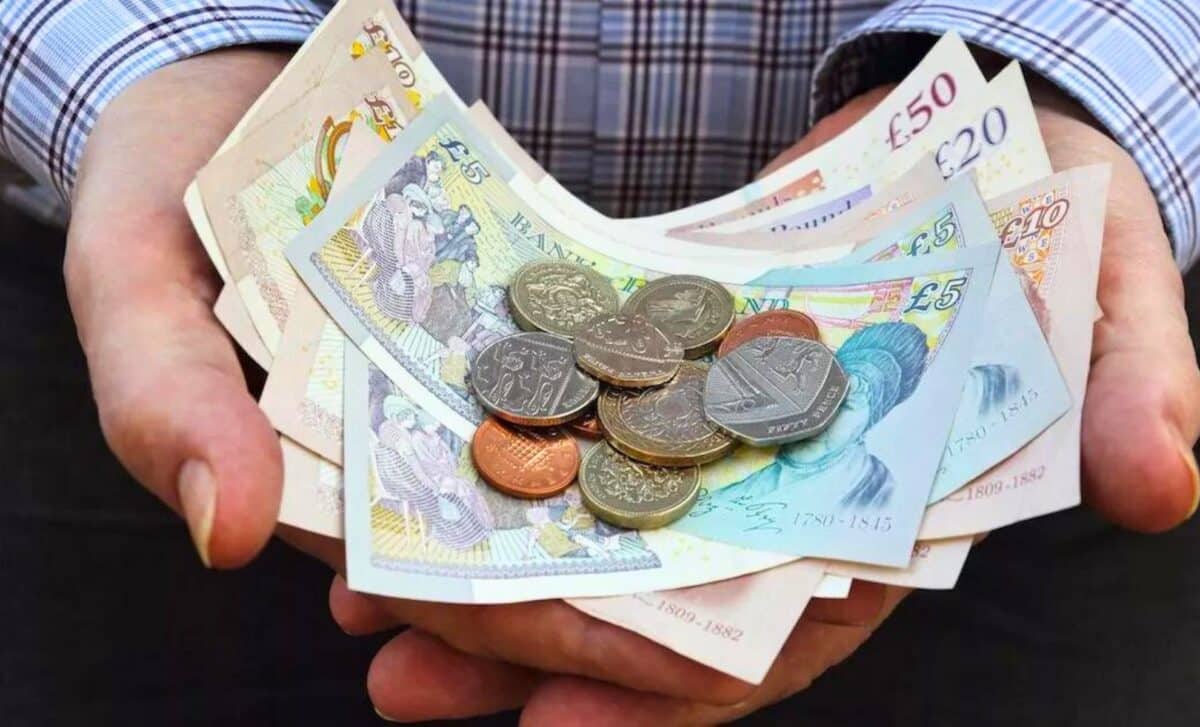According to the latest figures issued the Office for National Statistics (ONS) on Tuesday, average regular earnings growth decreased by to 4.5% (with bonuses) in the three months leading to June. This is a decrease from 5.7 percent last month, caused by a one-time bonus given to NHS staff last June.
This is important for the 12.7 million State Pensioners across Great Britain because it will affect the pension increase coming in April under the Triple Lock policy. The earnings growth data used for this adjustment is from May to July, and the official numbers won’t be available until September, as reported by the Daily Record.
State Pensioners Could See Weekly Boost Under Triple Lock
Under the Triple Lock policy, the New and Basic State Pensions are increased each year based on whichever is highest among the average earnings growth from May to July, the Consumer Price Index (CPI) for the year up to September, or a guaranteed 2.5 percent increase.
According to the most recent wage growth figures, the full New State Pension might climb by about £10 each week, from £221.20 to £231.15, and since the payment is normally delivered every four weeks, this amounts to £924.60.
Furthermore, the full Basic State Pension may increase by £7.60 every week, from £169.50 to £177.15, or £708.60 each four-week payment period.
Given that inflation is now at 2.0%, pension experts affirm that pay data would most likely be used to justify the increase.
Helen Morrissey, head of retirement analysis, Hargreaves Lansdown, stated: “Wage growth remains robust, so it’s highly likely that next month’s figure will be the one used to uprate State Pension under the Triple Lock. This month’s figure comes in at 4.5 per cent — way down on last month’s 5.7 per cent, but it has been affected by the payment of one-off bonuses in the NHS last year.
“If the figure were to remain the same next month, then we could see the full New State Pension get a boost of around £517 — taking it to approx. £12, 019 per year.”
The retirement expert went on to say: “Such a rise will be welcomed by pensioners still emerging from the cost of living crisis. However, with many still reeling from the news that their Winter Fuel Payment is to be taken away, it won’t be quite the boost that many hoped for.”
She also explained how keeping Personal Allowance at £12,570 is set to bring a larger number of pensioners closer to the tax threshold.
Ms Morissey clarified: “There’s another looming challenge — frozen tax thresholds mean that the full New State Pension is creeping ever closer to tax paying territory and a similar rise next year could see it surpass it. With these freezes in place until 2028, there’s every chance we could see pensioners solely reliant on the State Pension finding part of it is making its way to the taxman.”
NHS Bonus and Winter Fuel Cuts Impact State Pension Increases
According to the latest data from the Hargreaves Lansdown Savings and Resilience Barometer, only 38% of households are currently on pace for a decent retirement income, indicating that there’s a long road ahead.
Dealing with the consequences of long-term health issues on the workforce will be a significant task for the recently elected Labour government.
Steven Cameron, Pensions Director at Aegon, stated that the NHS bonus paid the previous year is expected to “suppress the figure due to be announced next month” but added that it is “highly likely that the increase will be based on earnings growth”.
He further stated: “The specific figure used for determining the Triple Lock is the year-on-year increase in earnings for the period ending May to July 2024, which will be published next month in mid-September. Barring any big fluctuations when July’s earnings figures are added in, this suggests State Pensioners may receive around a 4.5 per cent increase.
“The June 2023 NHS one-off bonus will also affect the May to July 2024 calculation, which will be a disappointment to state pensioners who might otherwise have received a higher increase.”
He also noted that millions of pensioners are likely to miss out on £200 in Winter Fuel Payments this year, stating: “While next April’s State Pension increase is likely to be higher than current inflation, any increase in ‘real’ terms will be significantly dented by the loss of the Winter Fuel Payment.”









